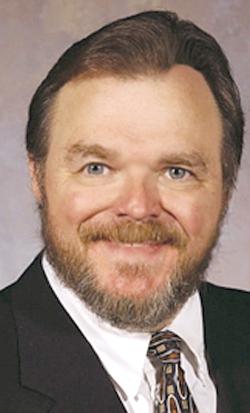
|

|
|
|
|
|
||
Baylor faculty member named one of '20 Most Brilliant Christian Professors'By Tim Woods Tribune-Herald staff writer Thursday April 15, 2010 Robert Marks, Baylor University Distinguished Professor of electrical and computer engineering, once again finds himself in the spotlight. Less than three years ago, Marks was at the center of an intelligent design-related controversy at the school. But Marks now is being honored for his work, notably his research in the area of evolutionary informatics.  Marks was named one of “The 20 Most Brilliant Christian Professors” by CollegeCrunch.org. CollegeCrunch.org, a college resource Web site, named Marks as one of “the 20 most brilliant Christian professors.” CollegeCrunch said professors included on the list “shine brightly among their peers as towering figures in the academic world.” Included are professors from such renowned universities as Johns Hopkins, Harvard, Notre Dame, Princeton, Rice, Stanford, Cambridge and Oxford. The list was limited to professors in English-speaking countries. Marks said he was humbled by his inclusion on the list. “For the record, I don’t deserve this,” he said. “But I have lower back pain and don’t deserve that, either.” Ian Gravagne, a tenured electrical and computer engineering professor at Baylor, disagrees with Marks’ self-assessment. “This list would simply be incomplete without mention of Bob,” said Gravagne, who has worked closely with Marks for seven years. “Brilliant: This description is absolutely spot-on. . . . His career spans practically the entire breadth of the fields of electrical engineering, and, what’s more, his contributions in those fields are deep and substantial. “To modify an overused cliché, Bob is a jack of all trades and master of most.” Walter Bradley, Baylor Distinguished Professor of mechanical engineering, also praised Marks’ work in areas directly related to faith and science, referring to Marks’ research as “pioneering.” In August 2007, though, Marks’ research led to legal wrangling with Baylor, which removed his Evolutionary Informatics Lab’s Web site from its server without notifying him. Much of his research was, and still is, conducted with William Dembski, former director of the controversial and short-lived Michael Polanyi Center at Baylor. It was the first center formed on the campus of a research university to study intelligent design. University officials said at the time that the site was removed because of a lack of clarification that the research was Marks’ own and that it contained no disclaimer stating the research was not endorsed by the university. Marks, Dembski and their attorney, John Gilmore, said the real issue was academic freedom. They claimed Baylor did not want to be associated in any way with intelligent design or related research. 2008 film The Marks case was one of many instances of purported academic persecution highlighted in the 2008 movie “Expelled: No Intelligence Allowed.” Marks acknowledged that Baylor was in a tricky position, balancing its research goals with its Christian heritage. But he said in the movie, “The fact that (his Web site) was singled out, let alone shut down, is jaw-dropping.” The site remains off Baylor’s server. Baylor spokeswoman Lori Fogleman said the school has “no plans to add anything called the Evolutionary Informatics Lab Web site to the Baylor server.” Fogleman, though, said Baylor is “immensely proud of the quality of our faculty and welcome it whenever their many accomplishments or the high caliber of their scholarship is publicly recognized.” Fogleman congratulated Marks, along with Peter Berger, a visiting Distinguished Professor of church-state studies at Baylor. Berger, who is early in his contract as visiting professor from Boston University, also was named to the College-Crunch list. Natural systems Evolutionary informatics uses the natural, mathematical and engineering sciences to study systems as they change and evolve. Marks said the work is intelligent design-friendly, though he points out that evolutionary informatics eliminates the “spooky forms of causation that have no place in science,” according to the lab’s Web page. He said information contributing to a mutation can be shown scientifically, through established engineering and mathematical “information theory,” to be the result of input external to the evolutionary process. Critics of intelligent design and evolutionary informatics contend that Marks and others in the field are not conducting science but are attempting to prove the existence of God. Marks said evolutionary informatics is not a quest to prove God, but rather to show that external intelligence plays a role in evolution or mutation. He said “one has to ask the question, ‘Where does the intelligence come from?’ ” Marks said the recent recognition of his work is not vindication for criticism that has been directed both at him and the field in general. “I think that when truth emerges, that will be the ultimate vindication,” he said. “And I think that’s going to come someday.” Stacking up That day may be sooner than later, Marks said, noting that peer-reviewed publications in his field in 2009, if printed and stacked, “would exceed the height of the Empire State Building.” Said Gravagne: “Bob’s research will vindicate itself. He finds himself at the center of a firestorm that is really not of his own making, and one day — yes, this day is coming, eventually — after the controversy wanes, Bob’s work will still be standing, simply because it is powerful and true.” twoods@wacotrib.com 757-5721 |
|
Find this article at:
http://www.wacotrib.com/news/Baylor-faculty-member-named-one-of-20-Most-Brilliant-Christian-Professors.html |
|
|
|